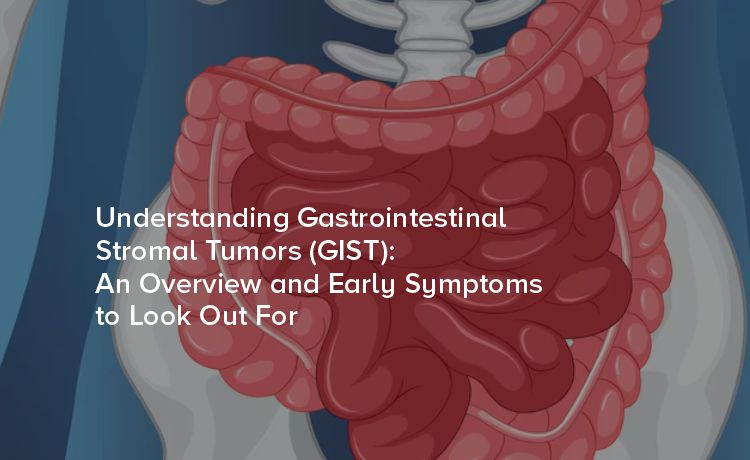
Gastrointestinal stromal tumors (GIST) may not be a frequent topic of conversation, but awareness about them is crucial. For those navigating the complexities of unexplained symptoms or seeking preventive health measures, understanding the early signs of GIST can be life changing.
The first step to tackling any health issue is awareness. GIST, a type of tumor found in the digestive system, often starts in the stomach or small intestine. While it's relatively rare, early detection significantly improves treatment outcomes.
GISTs are a form of soft tissue sarcoma that originates in the digestive tract. They mostly arise in the stomach or small intestine but can occur anywhere along the gastrointestinal tract. Unlike other types of tumors, GISTs start in special cells called interstitial cells of Cajal (ICCs), which help regulate digestive processes.
These tumors develop when genetic mutations cause ICCs to grow uncontrollably. While the exact cause is still unknown, researchers believe that most GISTs result from changes in the KIT or PDGFRA genes. These mutations make the cells multiply uncontrollably, leading to a tumor.
There are a few types of GIST, classified based on their genetic makeup and location. Common types include:
KIT-positive GIST: The most common type, constituting roughly 85% of cases.
PDGFRA-positive GIST: Making up about 5% of cases.
Wild-type GIST: Lacking mutations in either KIT or PDGFRA genes.
Abdominal Discomfort and Pain
One of the earliest signs of a GIST is persistent abdominal pain or discomfort. This might feel like a dull ache or sharp pain and is often localized in the upper abdomen. If you notice unexplained, continuous discomfort, it’s worth discussing with a healthcare professional.
Unexplained Weight Loss
Sudden weight loss without any changes in diet or exercise can be a red flag. While weight loss can result from various conditions, it’s essential to consider it a potential symptom of GIST.
Gastrointestinal Bleeding
GISTs may cause bleeding in the gastrointestinal tract, leading to symptoms such as blood in the stool or vomit. This symptom is particularly alarming and should prompt immediate medical evaluation.
Diagnostic Tests
Early diagnosis significantly impacts treatment success. Diagnostic tests for GIST include:
Endoscopy: Allows doctors to view the inside of the stomach and intestines.
Imaging Tests: CT scans, MRIs, and PET scans help identify the tumor’s size and location.
Biopsy: Examining a tissue sample can confirm the diagnosis and determine the type of GIST.
Treatment options vary depending on the tumor’s size, location, and genetic mutations. Common treatments include:
Surgery: Often the first line of treatment to remove the tumor.
Targeted Therapy: Drugs like imatinib (Gleevec) target specific genetic mutations in the tumor.
Radiation Therapy: Used in rare cases where surgery and targeted therapy are not viable.
With early detection and appropriate treatment, the prognosis for GIST patients is generally favorable.
Genetic Mutations
Most GISTs are caused by mutations in the KIT or PDGFRA genes. These genes are responsible for producing proteins that help regulate cell growth. When these genes mutate, they create proteins that do not function properly, leading to uncontrolled cell growth.
Familial GIST
In rare cases, GIST can be hereditary. Familial GIST syndrome involves inheriting a mutation in the KIT or PDGFRA genes, significantly increasing the risk of developing these tumors.
Environmental Factors
While genetic mutations are the primary cause, research is ongoing to determine if environmental factors play a role in developing GIST. Currently, there is no conclusive evidence linking lifestyle or environmental exposures to GIST.
Living with GIST often involves managing symptoms and treatment side effects. Common strategies include:
Nutritional Support: Working with a dietitian to maintain a balanced diet.
Pain Management: Medications and therapies to manage pain.
Mental Health Support: Counseling and support groups can help cope with the emotional aspects of the disease.
Regular follow-up care is crucial for monitoring the disease and managing any recurrence. Patients typically undergo periodic imaging tests and medical evaluations to ensure the cancer remains in check.
Ongoing research continues to explore new treatments for GIST, including novel targeted therapies and immunotherapies. Clinical trials offer hope for more effective treatments and potential cures.
Genetic studies aim to understand better the mutations that cause GIST and how they can be targeted more effectively. This research holds promise for developing personalized treatment plans tailored to each patient’s genetic profile.
Understanding and recognizing the early signs of gastrointestinal stromal tumors can make a significant difference in treatment outcomes. By staying informed about symptoms, diagnostic methods, and treatment options, individuals can take proactive steps to protect their health you will contact best gastro hospital in Hyderabad.